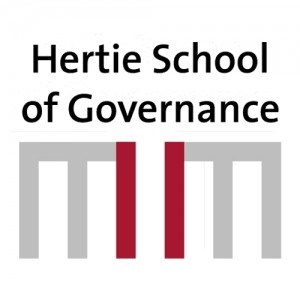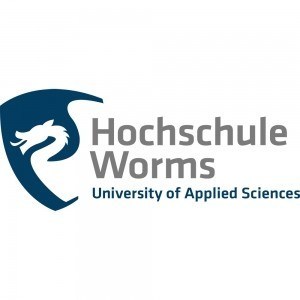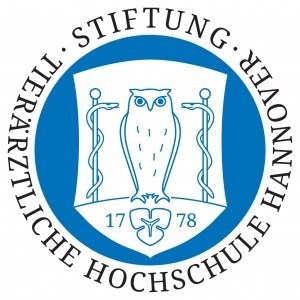Photos of university / #ruhrunibochum
Cognitive science is a dynamic, interdisciplinary area of research. The driving questions within cognitive science focus on the theoretical understanding and empirical investigation of cognitive phenomena, e.g.:
Key topics of research in the Master's programme in Cognitive Science at RUB are:
Key methods of research in the Master's programme in Cognitive Science at RUB include:
The programme is formally hosted by the Faculty of Psychology, but relies on strong interaction between several departments. Therefore, we can offer interdisciplinary classes as well as hands-on research experience in philosophy, psychology, neural computation, psychiatry and the neurosciences.
- What are the basic mechanisms of learning, forgetting, and remembering?
- What are the principles of action guidance in humans, and how do we understand the actions of others?
- What is the role of emotions in cognitive processing?
- What are the neural processes underlying object recognition?
- What does it mean to possess concepts and to be rational?
- How did the cognitive capacities of humans and animals evolve?
Key topics of research in the Master's programme in Cognitive Science at RUB are:
- social cognition
- learning and memory
- perception and action
- language, logic and categories
Key methods of research in the Master's programme in Cognitive Science at RUB include:
- philosophical theory formation
- behavioural and neuroimaging studies
- statistical analysis/experimental psychology lab
- basic and advanced logic
- computational modelling
The programme is formally hosted by the Faculty of Psychology, but relies on strong interaction between several departments. Therefore, we can offer interdisciplinary classes as well as hands-on research experience in philosophy, psychology, neural computation, psychiatry and the neurosciences.
Educational organisation
The two-year Master's programme in Cognitive Science at RUB is organised in eight different modules and a Master's thesis as module number nine.First semester:
A1: Introductory Lecture (one lecture + one seminar)
BM: Basic Methods: (three courses out of the four methods)
- Experimental Psychology Lab
- Logic
- Functional Neuroanatomy
- Neural Networks
- Social Cognition
- Learning and Memory
- Perception and Action
- Language, Logic and Categories
Second semester:
AM: Advanced Methods (two courses with two different methods)
- Theory Formation and Conceptual Analysis
- Advanced Analysis of Logic and Language
- Behaviour Studies
- Computational Modelling
- Molecular Imaging
- EEG training
- fMRI training
- Social Cognition
- Learning and Memory
- Perception and Action
- Language, Logic and Categories
Third semester: (five courses) - or optional exchange semester at a foreign university with individual study programme to be approved by the supervisor of the Master's thesis
I: Interdisciplinary Research Area (Students choose at least two focus modules from four areas which include philosophy, psychology, computational modelling and neuroscience.)
P3: Proposal for Master's thesis
Fourth semester: Master's thesis and examination
Study abroad unit(s)
Participants can spend one semester abroad (30 credit points). Cooperation agreements have been set up with several universities in Europe, Australia and the USA, therefore an exchange can be arranged quickly. Some financial support for travel will be offered.Internships
Internships are optional: an internship of six to eight weeks is strongly recommended for those students who will not use the option to study a semester abroad. The internship has to be completed during the summer break between the second and third semesters.Forms of assessment
Since different types of courses, e.g. lectures, seminars and tutorials, are involved in the programme, different forms of assessment will be used, e.g.- exams
- essays
- oral examinations
Course objectives
During the Master's programme in Cognitive Science in Bochum, students acquire a special combination of abilities, as they learn to write essays and develop theories, on the one hand, and are systematically trained to use some empirical methods on a research level, on the other. The combination of abilities in theoretical understanding and empirical investigation enables students to work in high-level, interdisciplinary research. Some special abilities that are also supported and learned are:- short and clear presentations
- logical reconstruction of arguments and detailed analysis of texts
- innovative development of experiments
- high-level methodological knowledge of state-of-the-art experiments
- expertise in two different advanced methods
- quick and clear writing of scientific essays
Language requirements
For admission to the Master's programme in Cognitive Science, an English proficiency level of at least B2 GER (Gemeinsamer Europäischer Referenzrahmen) is required. Evidence of this can be provided by means of the UNIcert® II-Zertifikat or the following scores in other English proficiency tests: IELTS 6.0, TOEFL IBT 98, TOEFL PBT 597 or FCE (First Certificate in English). An English proficiency test is NOT required for students who are native English speakers, i.e. citizens of one of the following countries: Australia, Canada (with the exception of Quebec), New Zealand, United Kingdom, Ireland or the United States of America, or who have obtained their secondary education in English for at least three years.Academic requirements
A Bachelor's degree of at least 180 credit points from within the European Union (EU), or an equivalent degree from outside the EU. The following additional considerations are in order: in the case of a single-subject BA degree, the subject must belong to one of the disciplines listed below; in the case of a double-subject BA degree, at least one subject from this list must have been studied for 60 credit points, while the other must have been studied for 15 credit points. Relevant subjects are: cognitive sciences, philosophy, psychology, neuroscience, informatics, linguistics or mathematics and equivalent subjects. Other subjects are considered equivalent when there is a significant overlap in the subject description, e.g. neuroinformatics or neurobiology.Enrolment fees
A social fee of approx. 270 EUR has to be paid. The fee includes a semester ticket covering public transport in North Rhine-Westphalia.Costs of living
Minimum of 670 EUR per month to cover personal and living expensesJob opportunities
There are no standard working opportunities. Outstanding students may receive an offer to work as a student assistant in a research group on campus.Funding opportunities within the university
Students with an outstanding academic performance who are involved in special social activities can each receive 300 EUR per month for a year from the Ruhr University Scholarship Fund.The scholarships are made available by companies, institutions, and individuals, and the amounts are matched by funds from the federal and state governments. With the help of our sponsors, we want to contribute to developing a scholarship culture in our country and increasing the desire of talented young people to study.
http://www.ruhr-uni-bochum.de/bildungsfonds/info-studierende/index.html
Arrival support
The International Office, through RUBiss, provides support to international students in many areas. The RUBiss Team (see below) helps with your arrival and with dealing with the new language, bureaucracy, formalities, and the unfamiliar social and university structures.Services and support for international students
RUBiss international student servicesSee: http://international.rub.de/rubiss/index.html.en
You can call upon the RUBiss Team for help and support during your stay, and we will be happy to answer any questions you may have. We are responsible for advising RUB's international students. RUBiss can accompany you to various events and excursions, and is there to help new students during their orientation phase and to answer questions at any time.
Accommodation
The AKAFÖ provides around 4,500 accommodation places in 19 halls of residence. You can find all the important information about this as well as an online application form on the homepage of the AKAFÖ in Bochum.For further consultation you may contact us during our opening hours.
AKAFÖ - Department Studentisches Wohnen (Student Accomodation) - Studierendenhaus, Room 062, or write an e-mail to: studentischeswohnen@akafoe.de.








